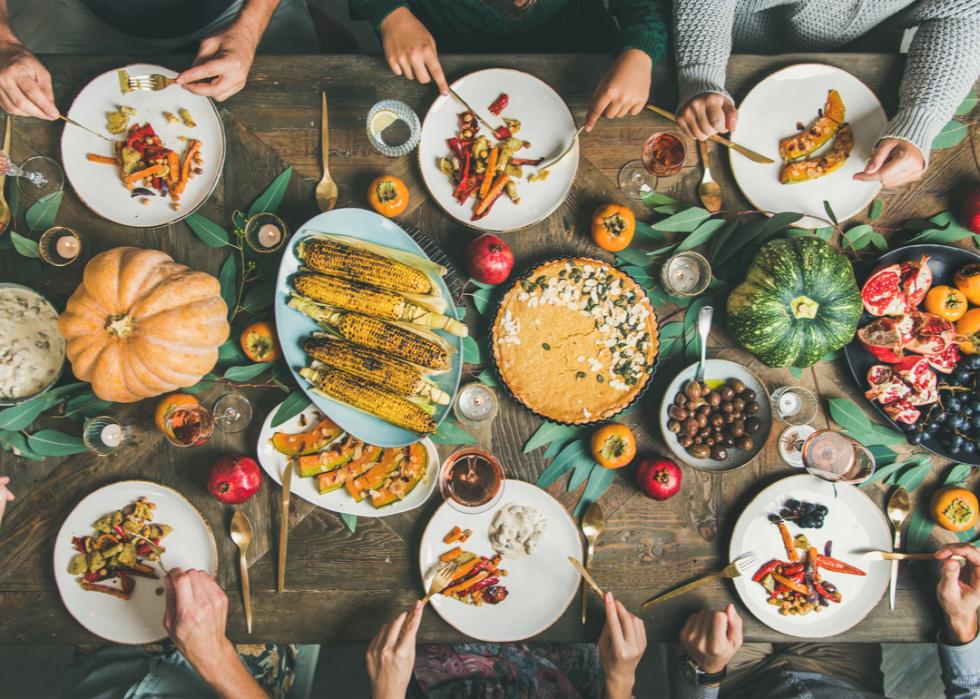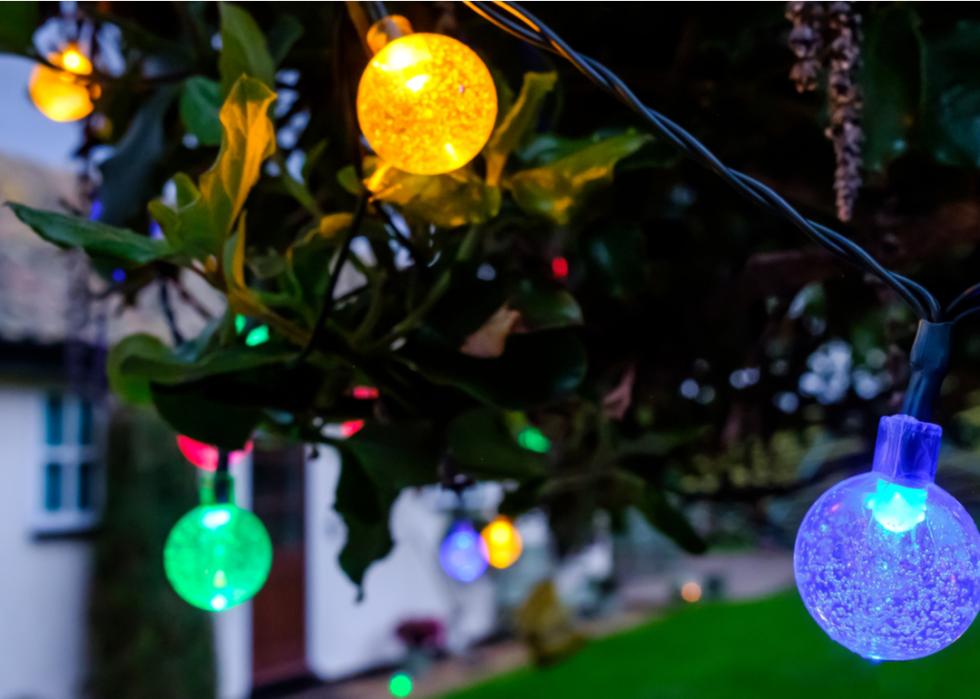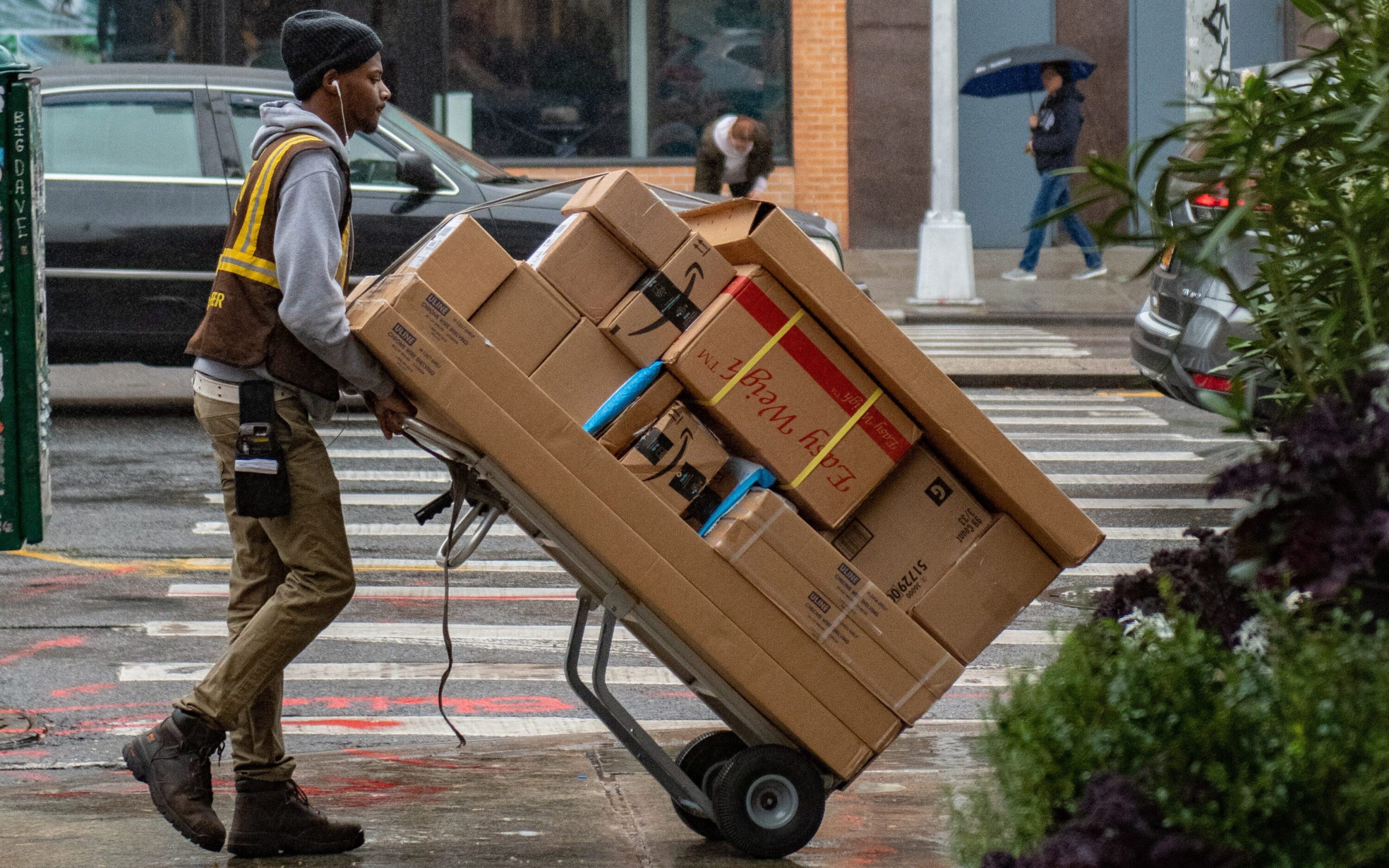The holidays are filled with fantastic feasts, time with family and friends, and memorable moments that last a lifetime. They are also the most trash-filled months of the year. According to the Environmental Protection Agency, household waste goes up more than 25% in the time between Thanksgiving and New Year’s Day. Bins filled with shopping bags, leftover food, single-use wrapping paper, and unwanted gifts add up to 1 million tons of waste per week to U.S. landfills.
There are several steps people can take toward sustainable consumption, though: buying gifts made of environmentally friendly materials and those that will last and won’t simply end up in landfill piles, regifting, and giving second-hand or heirloom items go a long way toward reducing waste. In the hopes of helping others have a more sustainable holiday season, Almond Cow compiled a list of ideas to celebrate the winter holidays with the planet in mind.
Find out what holiday habits and traditions can be revamped in the name of having an eco-friendly holiday season. Discover which method of transportation is the best for the environment. Learn why real trees are best when it comes to celebrating a sustainable holiday, and how renting a tree could become a new environmentally forward family tradition.
Tie up presents with reusable gift wrap

For the sake of sustainability, it makes sense to phase out that one-life environmentally unfriendly gift wrap. Fabric is a popular reusable substitution and offers a variety of colors and patterns, and there is no paper waste. Recyclable gift wrap, which can be reused several times, is also an option if fabric isn’t your thing. There is no need for tape to wrap up presents, either. Twine and biodegradable, compostable paper tape (made from pulp, wood fiber, or bark, and natural adhesives) are eco-friendly options. Paper tape comes in different patterns, and some rolls even feature sustainable glitter.
Take a train or drive to travel instead of flying

When it comes to travel, carbon dioxide is highest on a plane. A train cuts the amount of CO2 in half and is much more environmentally friendly when it comes to holiday travel. According to Treehugger, the reason for this is simple: While the train emits a significant amount of carbon, it can also carry a significant amount of passengers, making per capita emissions much lower. Planes also emit tropospheric ozone and produce vapor trails, which can have a real impact on climate. A recent study, published in Environmental Science & Technology, found that both driving a car passenger-less and flying on a plane that is at 80% occupancy have a similar impact on climate. If you plan to travel by car, carpool and take as many passengers as you can during that road trip.
Try a living Christmas tree

Millions of artificial trees are purchased in the U.S. each Christmas season, and according to The Nature Conservancy, 90% of these trees are manufactured overseas in China. Shipping them overseas creates an increase in carbon emissions. Not to mention that artificial trees are made of non-biodegradable plastics and often contain harmful chemicals like lead. Living Christmas trees are an eco-friendly option that, while single-use for each Christmas season, can be recycled. Real trees also smell great and help Christmas tree farms stay in business, which supports sustainable forestry. If chopping down a real tree isn’t your thing, consider renting a real Christmas tree that can be replanted at the end of the season. While real trees are a better alternative to artificial ones, it is important to note that many Christmas tree farms use a mix of pesticides and herbicides to control pests and fungi.
Incorporate plant-forward dishes into your holiday dinner

Adding plant-forward menu options to your holiday feast does not eliminate animal products, but instead focuses on making more plant-based foods, like fruit and vegetables. One 2019 study found 49.6% fewer greenhouse gas emissions were produced with a plant-based diet. Many plant-based holiday recipes are easy to find and simple to make.
Give charity donations as gifts

Donating to charities is a more sustainable choice than giving physical presents. Donating is also altruistic and makes people feel good about giving back. Charity donations don’t leave behind any waste, and they do not require a trip to the store using gas-guzzling cars. This sustainable gift choice can contribute even more to the planet if you give to a green organization that helps with environmental causes. These gifts can also be helpful come tax season as charitable donations are tax write-offs.
Light up your yard with solar-powered, LED string lights

A greener option than regular string lights, solar-powered lights do not require the use of standard electricity. They do not produce emissions that pollute the environment such as carbon dioxide and nitrous oxide. This eco-friendly lighting choice is also safer and more aesthetically pleasing because these lights do not require power cords. Solar-powered string lights use energy from the sun to operate and a few hours of sunshine in the afternoon will power lights all night, and they are a more affordable option than traditional holiday string lights in terms of saving on your electric bill. This sustainable holiday choice is also available at major retailers and the purchase price is comparable to standard LED string lights.
Order early and avoid shipping rushes

Sure, expedient shipping is amazing, and sometimes with the hustle and bustle of the holidays, it seems like a simple fix for managing time, but it comes with a steep environmental cost. While online shopping is more eco-friendly than retail shopping, when used for rush delivery, it essentially voids any environmental benefit. Rush shipments often go out without full loads, which increases harmful emissions. Ordering early allows more time for shipping. Preplanning and not waiting until the last minute when doing holiday shopping are helpful.
Choose quality gifts over quantity

Panic buying is a big reason why people purchase too much, choosing quantity over quality, and this year it may seem especially enticing to buy fast and furious given the supply chain issues. A little pre-planning and early shopping can help combat holiday panic buying and help the environment since buying too much is generally bad for the environment. Purchasing tchotchkes that get tossed or single-use presents adds to waste that ends up in landfills. If you do wind up purchasing unwanted gifts, there are better and more sustainable options than simply tossing them. Donating, regifting with purpose, or recycling are all great options. Quality eco-friendly gift ideas include plants, an experience like rock climbing, handmade gifts, a gift certificate to a local restaurant, or even passing along a favorite item that means something to you.
DIY holiday cards (or go without)

While often made from paper, many greeting cards cannot be recycled. The inks and dyes they use to create colors may contain volatile organic compounds (VOCs). VOCs have a significant and lasting impact on the environment and on human health. Most of the millions of greeting cards purchased each year are given out during the holidays and create a significant amount of waste. Thinking of an e-card? A single email requires a surprising amount of electricity and produces roughly 4 grams of CO2. A more sustainable option is to make greeting cards by hand using recyclable or biodegradable materials or simply go without. Digital holiday cards are another earth-friendly option.
Go for a natural wreath

Just as purchasing a real tree instead of an artificial one is a more sustainable choice, so too is buying a natural wreath than a fake one. Natural wreaths not only smell better but can be recycled at the end of the season. You can also compost real wreaths after the holidays. Making a real wreath can also be a fun way to bond with family, and going on a nature hike or walk to find natural materials to create your holiday wreath is a simple way to get a bit more oxygen and sunshine.
Written by: Nicole Johnson. This story originally appeared on Almond Cow and was produced and distributed in partnership with Stacker Studio.
Re-published with CC BY-NC 4.0 License.







